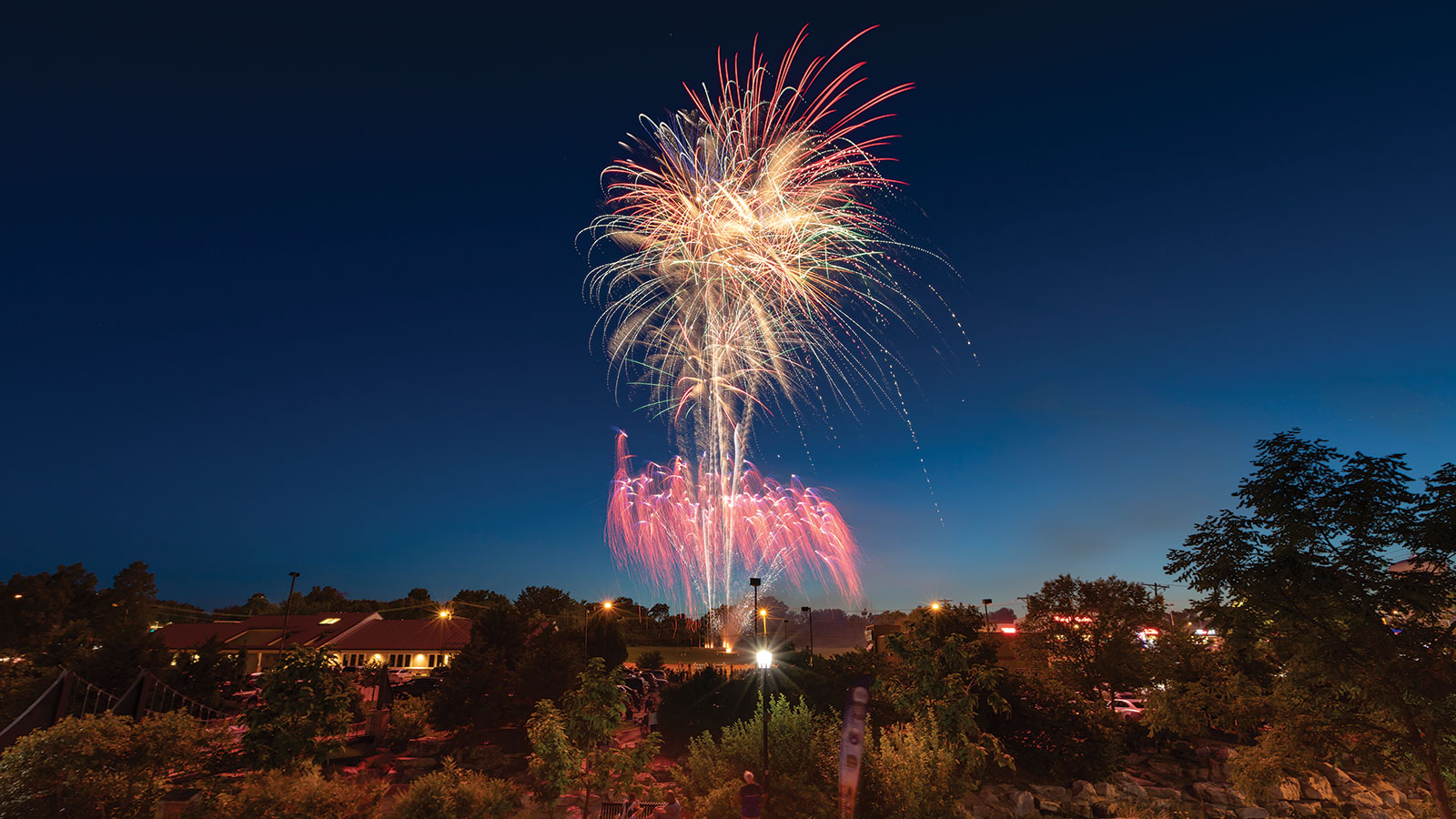
Explore CoMo through the Convention & Visitors Bureau — you might discover something new in your own town.
The full history of the Columbia Convention and Visitors Bureau is a bit murky, but it does date back to 1964. That year, a tourism fund was established, according to Chapter 26 Article IV of the City Code of Ordinances. In 1982, the CVB officially became a department of Columbia, and today, it highlights everything Columbia has to offer and provides tourist information to those visiting.
“Our mission is to generate economic growth and promote Columbia as a tourism destination that creates memorable experiences,” Director of the Columbia Convention and Visitors Bureau, Amy Schneider, says.
The website contains troves of information about Columbia, including maps, directions, community resources, and accolades earned by the city. In 2021, Columbia was No. 40 in the 100 best places to live from Livabilty.com’s “100 Best Places to Live ” and No. 29 in Best College Reviews’ list of the 50 best college towns in America.
“Because of its central location in Missouri, Columbia has always been a hub for visitation,” Schneider says.
Tourism helps boost Columbia’s economy and continually contributes to the growth of the city as a whole. On the bureau’s website, VisitColumbiaMo.com under the Partner Resources tab, you can read about the economic impact of the Columbia Convention and Visitors Bureau’s annual reports. According to the 2021 report, $392,240,010 was spent on tourism in Boone County.
“The CVB works to attract visitation locally, statewide, regionally, nationally, and internationally,” Schneider says. “This visitation helps our local economy as our visitors are spending their dollars at hotels, restaurants, gas stations, retail, and other expenditures throughout the city and the county. The money spent includes tax dollars that are used to support roads, public safety, and other essential services for our community.”
But the tourism benefits don’t stop there. There are plenty of other ways Columbia and the community benefit from the CVB.
“Besides the economic benefits, the CVB team works to educate the community about tourism and its benefits to the community,” Schneider says. “One of the ways we do that is through our Columbia Tourism Ambassador program. This program focuses on economic growth to the community, industry partnerships, tourism awareness, and quality experiences,” Schneider says.
The CVB doesn’t only seek to benefit visitors, it aims to help locals just as much. CVB has positioned itself as the go-to source for all questions regarding Columbia, whether they are in regards to tourism or not.
“During the pandemic, we switched our website from being a visitor information site to a community site,” Schneider says. “We had COVID updates, information about what businesses were open and who was temporarily closed. We also had an ever-changing restaurant listing—hours of service, curbside delivery information, and anything else that the community needed to know.”
To achieve this, the CVB practices cross-departmental at all times. The sales team is a great example of that as it steps in to help event planners before they visit Columbia. You can request a tour proposal online where you enter your personal information along with the number of people attending your event and any special notes or requests. The CVB will then reach out to you to help plan your event in Columbia.
“We have a sales team that works with planners, whether they are meeting planners or sports planners,” Schneider says. “We provide information on our website that allows planners to contact our sales team, and our team then works with the planner from the time they make an inquiry to the time their event takes place.”
If you are a Columbia resident, you can pick up the CVB guide for free at their offices, or locate one around town at select local restaurants and businesses. If you are planning to visit Columbia, you can request one online to help you plan your visit.
“Our website also provides information from where to stay, eat and play to what special events are taking place,” Schneider says. “We have a dedicated team and each member of the team plays an important role in informing and working with visitors, as well as our community.”
On the website, under the visitor tab, “Where to Eat” is sorted by cuisine while the “What to Do” section is sorted by different types of outings, including nightlife, family fun, day trips, and art galleries and museums.
For Schneider, her favorite part about Columbia is ever-changing, similarly to the city, because with so many options, it’s always easy to find something new to enjoy.
“I’ve called Columbia home since 1989,” she says. “Throughout the years, as I’ve developed so have my interests, leading me to participate in many things “Columbia-centric”. The one consistent throughout the years is the community. Columbia has an engaged, intelligent, creative community. Because of that, we are able to host internationally known festivals, participate in First Fridays, find a trail to hike almost anywhere in the community, and listen to live music almost anytime we want to. And so many other opportunities that other communities just don’t offer. There’s a reason so many people come to Columbia for school or perhaps a job and they don’t leave.”
The CVB is currently undergoing a tourism strategic planning process to continue to grow the bureau and the city as a whole.
Columbia Convention and Visitors Bureau
300 S Providence Road
(573) 875-1231
VisitColumbiamo.com


